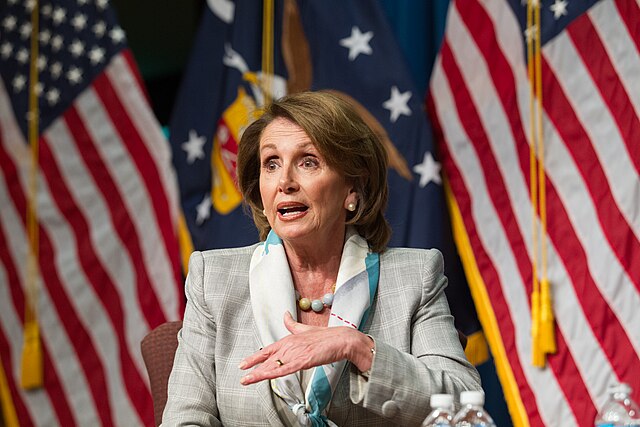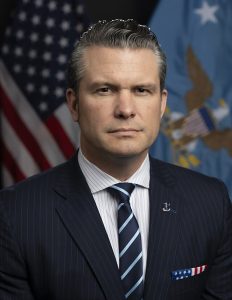Former House Speaker Nancy Pelosi appeared on CNN this week for a wide-ranging interview that covered the looming government funding deadline, divisions within Congress, and her outlook on the Democratic Party’s future. The interview, which aired Tuesday, quickly drew national attention for its intense exchanges and moments of tension between Pelosi and host Dana Bash.
At 84, Pelosi remains one of the most recognized and influential figures in American politics. Having served two terms as Speaker and now holding the honorary title of Speaker Emerita, she continues to play an active role in shaping House Democratic messaging. Her CNN appearance was intended to clarify her party’s stance on the continuing resolution (CR) designed to keep the federal government funded, but it also showcased the deep partisan rifts that have defined this year’s budget standoff.
A Debate Over a “Clean” Continuing Resolution
The conversation began with Bash asking Pelosi about the ongoing impasse over the short-term funding bill. Republicans in the House, backed by President Donald Trump, have argued that their version of the CR is “clean,” meaning it contains no policy riders or unrelated provisions. Democrats, however, claim that the proposal omits several essential programs and fails to address priorities such as healthcare funding and disaster relief.
Pelosi countered the Republican characterization, saying the legislation “ignores key responsibilities of government” and warning that a shutdown would harm working families. “We want to keep the government open,” she said. “But we cannot accept a bill that leaves millions of Americans without the services they rely on.”
Bash pressed her on whether Democrats would consider supporting the measure to avoid a shutdown. Pelosi insisted that her caucus remained united behind efforts to pass a short-term extension that would include temporary funding for healthcare subsidies, veterans’ programs, and disaster recovery. “These are not add-ons; these are obligations,” she said.
The exchange highlighted the rhetorical divide between the two parties. Republicans describe Democratic demands as unnecessary spending expansions, while Democrats view them as essential protections for public welfare. The back-and-forth also underscored the difficulty of finding common ground before the mid-October funding deadline.
Fact-Checking and Clarifications
Throughout the interview, Bash occasionally paused to clarify figures and legislative details, prompting some viewers to note how contentious the conversation became. CNN later issued several on-air clarifications regarding the status of Senate votes on the CR, confirming that while the bill had advanced multiple times, it had not yet passed final procedural hurdles.
Pelosi’s team welcomed the corrections, saying they helped clarify “a confusing and fast-moving process.” Still, conservative commentators seized on the moment to portray Pelosi as evasive or out of touch, while her supporters argued that the interview demonstrated her command of congressional procedure and her continued commitment to legislative priorities.
Pelosi’s Enduring Influence
Even after stepping down from the speakership in early 2023, Pelosi retains considerable influence within the Democratic Party. Her honorary title, Speaker Emerita, carries no formal authority but symbolizes her ongoing role as a senior adviser and fundraiser. She continues to attend caucus meetings and frequently communicates with party leaders, including current House Minority Leader Hakeem Jeffries.
During the interview, Pelosi dismissed criticism that she should retire from political life. “Experience matters,” she said. “This is not about age; it’s about results. Our democracy is at stake, and I’m proud to continue contributing however I can.”
Analysts note that Pelosi’s longevity reflects both her political skill and her party’s respect for institutional memory. Still, her high profile also makes her a frequent target of partisan attacks. In recent years, she has been portrayed by critics as emblematic of Washington’s entrenched political class, while admirers credit her with passing landmark legislation on healthcare, infrastructure, and pandemic relief.
Discussion of Party Integrity and Candidate Controversies
Later in the interview, Bash turned to the issue of political ethics, referencing a series of controversies involving candidates from both parties. When asked about Jay Jones, the Democratic nominee for attorney general in Virginia who has faced scrutiny over past statements and speeding-related charges, Pelosi declined to weigh in on the specifics of his record. Instead, she emphasized the importance of letting voters make informed decisions.
“I believe in accountability,” Pelosi said. “Every candidate should be judged by their actions, their record, and their ability to serve the people. But ultimately, it’s the voters who have the final say.”
Her response was measured but drew differing reactions. Republican officials criticized her for not taking a stronger stance against a member of her own party, while Democratic aides said her restraint reflected a long-standing principle of letting state races play out without interference from national leadership.
Double Standards and Political Rhetoric
Pelosi also addressed what she described as “dangerous rhetoric” in American politics, particularly the rise of violent language in campaigns and online discourse. She urged both parties to “lower the temperature” and reject personal attacks. “When we allow threats or hateful comments to become normalized, democracy suffers,” she said. “We can disagree without dehumanizing one another.”
Bash noted that many Americans perceive a double standard in how political figures are treated by the media depending on their party affiliation. Pelosi responded that fairness in journalism is “essential to trust,” adding, “We rely on the press to report facts, not to referee ideology. But it’s on all of us — politicians, journalists, and citizens — to insist on truth and civility.”
That portion of the interview resonated widely online, with supporters praising her call for restraint and opponents dismissing it as hypocrisy. Still, it underscored Pelosi’s continued role as both a polarizing and consequential figure in American politics.
Reactions Across the Spectrum
Following the broadcast, reactions broke along familiar partisan lines. Progressive activists applauded Pelosi for defending social programs and calling out what she framed as Republican obstruction. Conservative commentators argued that she misrepresented the content of the CR and dodged questions about internal Democratic divisions.
Media analysts described the exchange as a “rare unscripted moment” on cable news. “What stood out,” said Dr. Elena Torres, a professor of political communication at Georgetown University, “was how forceful both women were. Bash pushed for specifics, and Pelosi, to her credit, engaged rather than retreating behind talking points.”
Social media also amplified the encounter, with clips of Pelosi’s responses circulating widely on X and Threads. Some viewers criticized the former Speaker’s delivery and tone, while others praised her persistence and command of detail. CNN’s corrections segment, aired the following morning, clarified that Pelosi’s references to Senate procedures were accurate in context — a rare instance where multiple interpretations of legislative language led to confusion.
A Symbol of a Changing Era
Pelosi’s CNN appearance came as Congress faces mounting pressure to reach a funding deal before federal agencies run out of money. The impasse reflects deeper ideological divides over spending priorities and the size of government — issues that have defined Pelosi’s career since she first entered the House in 1987.
In closing, Bash asked whether Pelosi saw any path toward bipartisan cooperation. “There’s always a path,” Pelosi said. “The question is whether people are willing to take it. Compromise is not a weakness; it’s how democracy works.”
As the interview ended, Pelosi smiled and thanked Bash for “an honest discussion,” adding that she welcomed “tough questions.” Bash, for her part, commended the former Speaker for appearing despite the contentious political environment.
Political observers say the interview may not change many minds but serves as a reminder of Pelosi’s enduring presence in Washington. Her decades-long tenure — marked by both triumph and controversy — continues to shape the Democratic Party’s identity and strategy heading into the 2026 midterm elections.

Emily Johnson is a critically acclaimed essayist and novelist known for her thought-provoking works centered on feminism, women’s rights, and modern relationships. Born and raised in Portland, Oregon, Emily grew up with a deep love of books, often spending her afternoons at her local library. She went on to study literature and gender studies at UCLA, where she became deeply involved in activism and began publishing essays in campus journals. Her debut essay collection, Voices Unbound, struck a chord with readers nationwide for its fearless exploration of gender dynamics, identity, and the challenges faced by women in contemporary society. Emily later transitioned into fiction, writing novels that balance compelling storytelling with social commentary. Her protagonists are often strong, multidimensional women navigating love, ambition, and the struggles of everyday life, making her a favorite among readers who crave authentic, relatable narratives. Critics praise her ability to merge personal intimacy with universal themes. Off the page, Emily is an advocate for women in publishing, leading workshops that encourage young female writers to embrace their voices. She lives in Seattle with her partner and two rescue cats, where she continues to write, teach, and inspire a new generation of storytellers.









